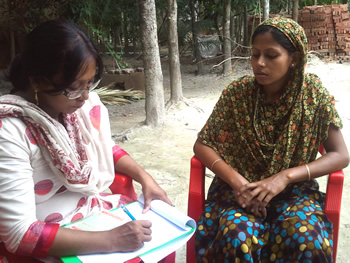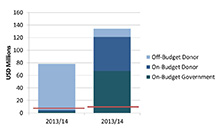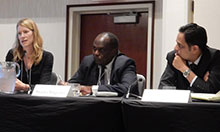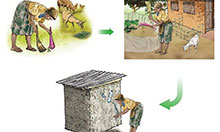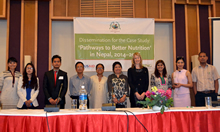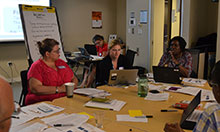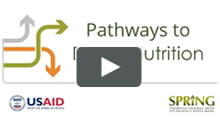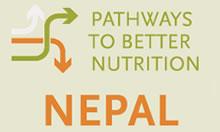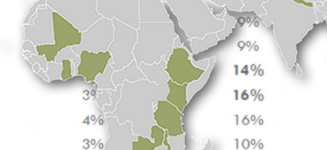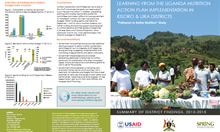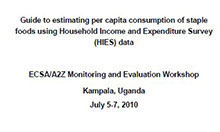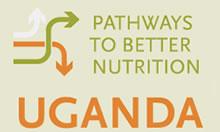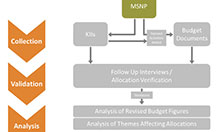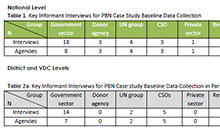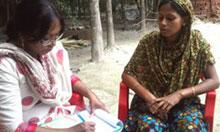Improving the collection and use of information is a priority for SPRING. Data from a variety of sectors (agriculture, finance, education, health, etc.) play an important role in improving nutritional outcomes for women and children. To achieve our goal, we gather evidence on the best ways to fill data gaps, develop new tools and guidance, and seek consensus on best practices.
Major SPRING activities in this area include—
- organizing a series of webinars on Better Data for Nutrition
- leading a collaborative effort to repurpose Household Consumption and Expenditure Surveys (multipurpose household surveys) to make them more attuned to countries' nutrition policy needs and strategies
- refining a multi-partner tool for rapidly evaluating facility-level nutrition assessment, counseling, and support
- developing a methodology to estimate and analyze funding allocated by countries to implement nutrition activities—and, to the extent that there are available data, how much of that funding was spent.
The information that results from these activities helps program managers, policymakers, and international organizations better understand nutrition needs, make more informed decisions, plan more effectively, and advocate for improved nutrition funding.
What and how information is communicated affects actions at all levels related to food availability, care practices, health services, and the sociocultural environment. Changes in policies, financing, and information or monitoring systems, for example, will do little good if they are not communicated from national to community to household levels. Similarly, the information that is or is not communicated with regard to the cost of agricultural inputs and food, available health services, priority nutrition practices, and prevalence of malnutrition, for example, can affect what food is grown, stored, and/or purchased, if health services are utilized, how children are fed, or which nutrition programs are funded.
